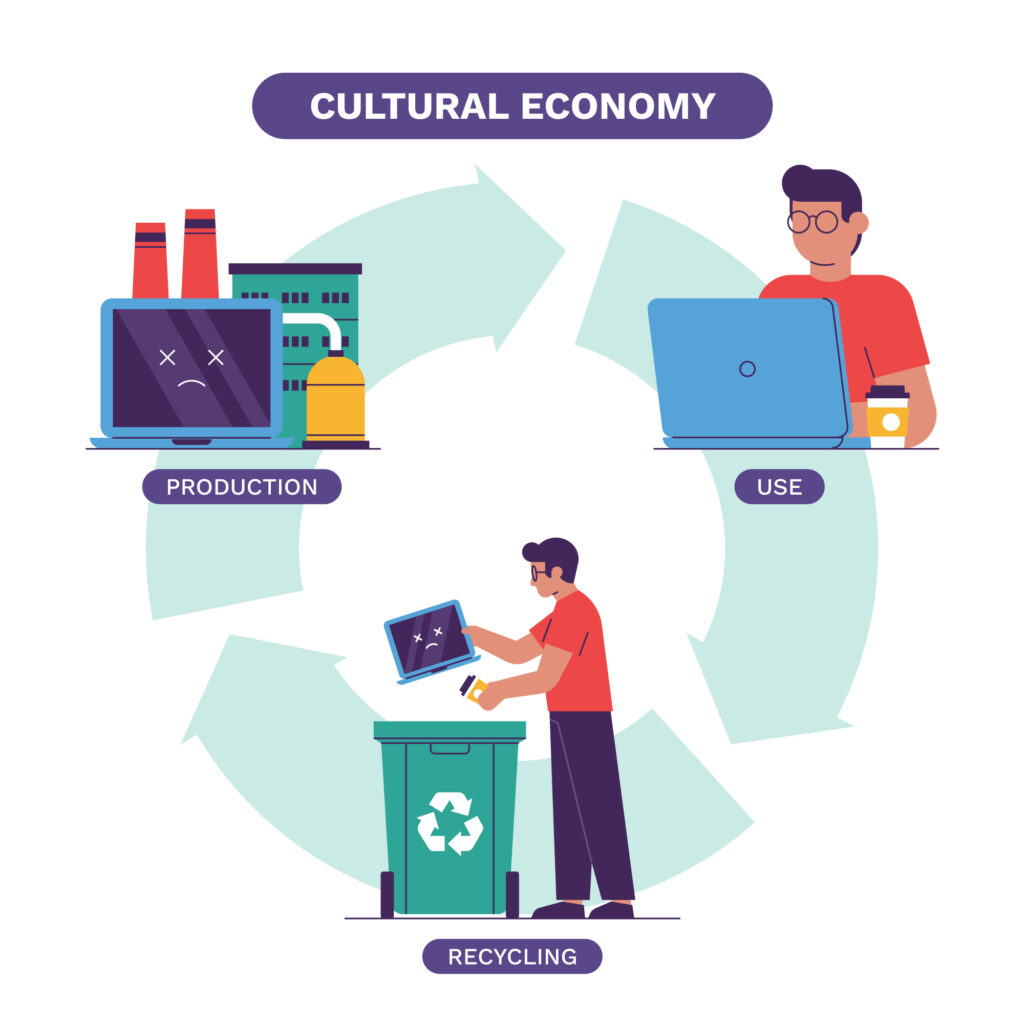The Cultural Economy refers to the intersection of culture and the economy, where cultural products and activities are produced, distributed, and consumed as economic goods. It encompasses various creative and cultural industries such as art, music, film, fashion, design, and more.
E-waste recycling, on the other hand, focuses on the proper disposal and recycling of electronic waste. E-waste consists of discarded electronic devices like computers, mobile phones, televisions, and other electronic appliances. Recycling e-waste is important because electronic devices contain hazardous materials such as lead, mercury, and cadmium, which can be harmful to the environment and human health if not disposed of properly.

The cultural economy can play a significant role in e-waste recycling through several avenues:
Awareness and Education: The cultural economy can contribute by raising awareness about the environmental impact of e-waste and the importance of responsible disposal and recycling. Artists, musicians, filmmakers, and designers can use their platforms to communicate messages about sustainability and promote recycling practices.
Upcycling and Repurposing: Artists and designers can incorporate e-waste materials into their creations, giving new life and value to discarded electronics. This can promote the concept of upcycling and encourage consumers to see the artistic and aesthetic potential of e-waste.
Collaboration and Innovation: The cultural economy can collaborate with recycling initiatives and organisations to develop innovative solutions for e-waste management. This can involve creating spaces for artists and designers to work with recycling facilities, exploring new recycling techniques, or organising events that bring together stakeholders from both the cultural and recycling sectors.
Sustainable Design: The cultural economy can influence the design and production of electronic devices by advocating for more sustainable practices. This can include using recyclable or biodegradable materials, designing for repair-ability and modularity, and promoting the longevity of electronic products.
Circular Economy Models: The cultural economy can contribute to the development of circular economy models for e-waste, where products are designed with recycling and resource recovery in mind. This can involve promoting extended producer responsibility, encouraging take-back programs, and fostering collaborations between cultural and tech industries to find innovative ways to close the e-waste loop.
Overall, the cultural economy has the potential to raise awareness, drive innovation, and inspire sustainable practices in e-waste recycling, contributing to a more environmentally conscious approach to managing electronic waste.






